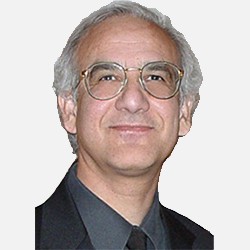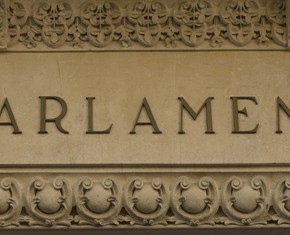The views expressed in our content reflect individual perspectives and do not represent the authoritative views of the Baha'i Faith.
The writings of Baha’u’llah creatively redefine and reconstruct many widespread cultural concepts – including the traditional spiritual and religious concept of detachment:
No man shall attain the shores of the ocean of true understanding except he be detached from all that is in heaven and on earth. Sanctify your souls, O ye peoples of the world, that haply ye may attain that station which God hath destined for you. – Baha’u’llah, The Book of Certitude
Almost all mystical and religious traditions call people to become detached from the material world and focus on God and the spiritual realm. This same concept is also frequently affirmed in the writings of the founder of the Baha’i Faith, Baha’u’llah.
However, Baha’u’llah completely reinterpreted the concept of detachment, investing it with complex and progressive meanings.
Traditionally, the concept of detachment has meant a particularly dismissive attitude towards this world and towards work and labor within it. Many religious traditions have turned the idea of detachment into a rejection of this world, reducing it to an evil material entity, and calling for withdrawal from it into cloistered or hermitic lives of self-abnegation.

The underlying assumption of these ideas arises from the fundamental opposition between the material world and the spiritual world. Nietzsche’s devastating critique of religion, for example, mostly grounded itself in defining religion as the assertion of the opposition between this world and other world – denying any value for the former and sacrificing it for the latter. Likewise, extreme forms of a traditional understanding of detachment have called for withdrawal from work and employment into an ascetic lifestyle. Economic activities, therefore, have been defined as immoral preoccupations, whereas idleness and withdrawal to the caves or the monasteries have been extolled as noble and spiritual.
Reject the material world, this traditional thinking goes, and you will become spiritual.
Baha’u’llah has radically transformed this old notion of detachment, and through such reinterpretation he has revolutionized our approach to reality. The writings of Baha’u’llah provide three distinct meanings for the concept of detachment from all else but God. The first two meanings relate to the traditional discourse on detachment. The third meaning, however, poses a radically new idea. Let’s examine all three:
1. Detachment and Work
Traditionally, many mystical authors have viewed economic work as an evil and corrupt preoccupation. For example, some, but not all Muslim mystics have defined work as opposed to faith and trust in God. This version of Sufism usually affirms a doctrine of absolute divine fatalism, which posits that only God can be the cause of any event, and nothing other than God can cause anything. Therefore, those with this attitude believe that relying on one’s economic activity as the source of income and sustenance is an illusion which represents lack of trust in God. Those who trust in God and his absolute power and agency should refrain from work, this belief holds, because God will provide for them. That is why wandering and begging is perceived as a spiritual virtue. Of course, many other Sufis have rejected this extremist idea.
The writings of Baha’u’llah completely reverse this extremist call for withdrawal from labor, industry, and human society:
It is enjoined upon every one of you to engage in some form of occupation, such as crafts, trades and the like. We have graciously exalted your engagement in such work to the rank of worship unto God, the True One. Ponder ye in your hearts the grace and the blessings of God and render thanks unto Him at eventide and at dawn. Waste not your time in idleness and sloth. Occupy yourselves with that which profiteth yourselves and others. Thus hath it been decreed in this Tablet from whose horizon the day-star of wisdom and utterance shineth resplendent. – Tablets of Baha’u’llah
In an untranslated tablet, written in response to the questions of Zayn-al-‘abidin (later, Zayn al-Muqarrabin), Baha’u’llah addressed the question of detachment from work and economic activity. He explained that detachment is one’s work, for earning a living and the very process of employment and labor. He proclaimed that work and occupation exemplify the realization of detachment, because work saves us from begging, dependence on others, abasement before the unjust, and degradation from the rich and powerful.
That kind of productive, self-sufficient detachment, the Baha’i writings say, is binding on everyone.
This inversion of the traditional concept of detachment liberates the idea of detachment from an amazing hypocrisy. A person who does not work uses the product of the work of other human beings. If no one works, all would die from starvation. Not working and becoming dependent on others is not detachment from people – it is the essence of dependence on others. In addition, it is completely immoral, because if one can work and refuses to, expecting others to finance his or her life, one exploits others. Exploitation, as Marx correctly understood, is appropriation by the idle of the surplus that is produced by others. For this reason, the Baha’i teachings point out that work, when performed in a spirit of service and in the utmost excellence possible for that individual, becomes true worship of God. From a Baha’i perspective labor and industry, performed in a spirit of serving and helping humanity, is an exemplary spiritual activity.
2. Detachment as Spiritual Orientation
The writings of Baha’u’llah frequently call for detachment from all but God – but that does not negate or demonize this world.
On the contrary, for Baha’u’llah the truth of everything is spiritual. All things are mirrors that reflect divine names and attributes. Baha’u’llah does not call for withdrawal from the world. Instead, he finds religion and spirituality inseparable from engaging in this world and transforming it so all humanity can realize the spiritual potential of nature and society.
For Baha’is the opposition, therefore, does not occur between the celestial world and this material world. Rather, the opposition comes between looking at the world as a holistic interconnected reality, a sacred reflection of God, on the one hand, and perceiving the world as a set of solid, isolated, and independent things and selfish persons on the other.
Detachment from the world from a Baha’i perspective means detachment from a selfish and isolated conception of the world. But such conception is not the real world – it is just an illusion. True detachment requires detaching from this illusion, and turning towards the truth of the world, a spiritual reflection of God, where everything is interdependent, sacred and endowed with rights. Real detachment, therefore, means that in our approach to the world we should be liberated from a selfish and ego-centered, narcissistic social construction of reality. Not only should we not withdraw from the world, we should actively engage in the world to transform it, to realize God’s paradise in this world – harmony between nature and culture, universal peace, the oneness of humankind, and justice and prosperity for all nations and all peoples.
3. Detachment as Independent Thinking
However, the most important meaning of detachment offered by Baha’u’llah presents an entirely unique and novel idea. Baha’u’llah’s statement – “No man shall attain the shores of the ocean of true understanding except he be detached from all that is in heaven and on earth” – comes from the very beginning of one of his most important books, the Book of Certitude.
In it, Baha’u’llah explained how detachment becomes the method we can use to pursue our own independent investigation of the truth. According to Baha’u’llah, the precondition of attaining truth is one’s liberation from the ideas and prejudices prevalent in the world. To know any kind of truth, and especially the spiritual truth, one must not become dependent on the thinking and judgment of others. Instead, one has to develop the habit of thinking independently, of looking at reality with one’s own eyes and not through the eyes of others.
One reason explains why all the prophets of God were persecuted, harmed and even killed by the very people who were weeping for the advent of their Promised One – people did not think for themselves. They followed their priests and clerics, who transmitted the traditions and prejudices of society and the judgment of others. As just one example, the dominant school of Shi’ism in Iran during 19th century, called the Usuli school, was precisely based upon the idea that ordinary people cannot think for themselves – that they are like children who should blindly follow the dictates of the clerics. While that clerical outlook ultimately led to the rise of a clerical theocracy in Iran, the message of Baha’u’llah comes to the very exact opposite conclusion.
Baha’u’llah’s writings argue that all humans are endowed by God with the gift of consciousness and the duty to think for themselves. Obeying and blindly following others requires renouncing that gift of God to human beings. Such spiritual bondage is the essence of the rejection of God and spiritual truth. For Baha’u’llah, the traditionalist worldview of the clerics of many Faiths opposed reason, democracy, social progress, human rights, social justice, and individual empowerment. Therefore, becoming detached from the judgments and authority of clerics, celebrities, and the prevalent tribal, cultural, and political prejudices constitutes the real detachment from all else but God.
Such detachment and independence of mind, therefore, forms the necessary condition for any real investigation of truth. Humans have constructed for themselves all kinds of illusory walls of separation through various ideologies that justify war, hatred and discrimination. Ultimately, Baha’u’llah’s teachings say, only the universal habit of independent thinking can shatter these illusions and unite the hearts of humanity.
You May Also Like
Comments

















That is exactly the Sufi doctrine. Work and worship are seen as part of an integral whole. Ihsan (perfection of worship) is realized through our entire life, shared with other human beings. For the Sufi it is expressed in the saying “Outwardly to be with the people, inwardly to be with God.” - one of the basic Sufi principles. Everywhere is the place of meeting our Beloved and the world is a sacred space, a place where the mystery of love/divine oneness is revealed (what the Sufis call ...Waḥdat al-wujūd - “the unity of being”)